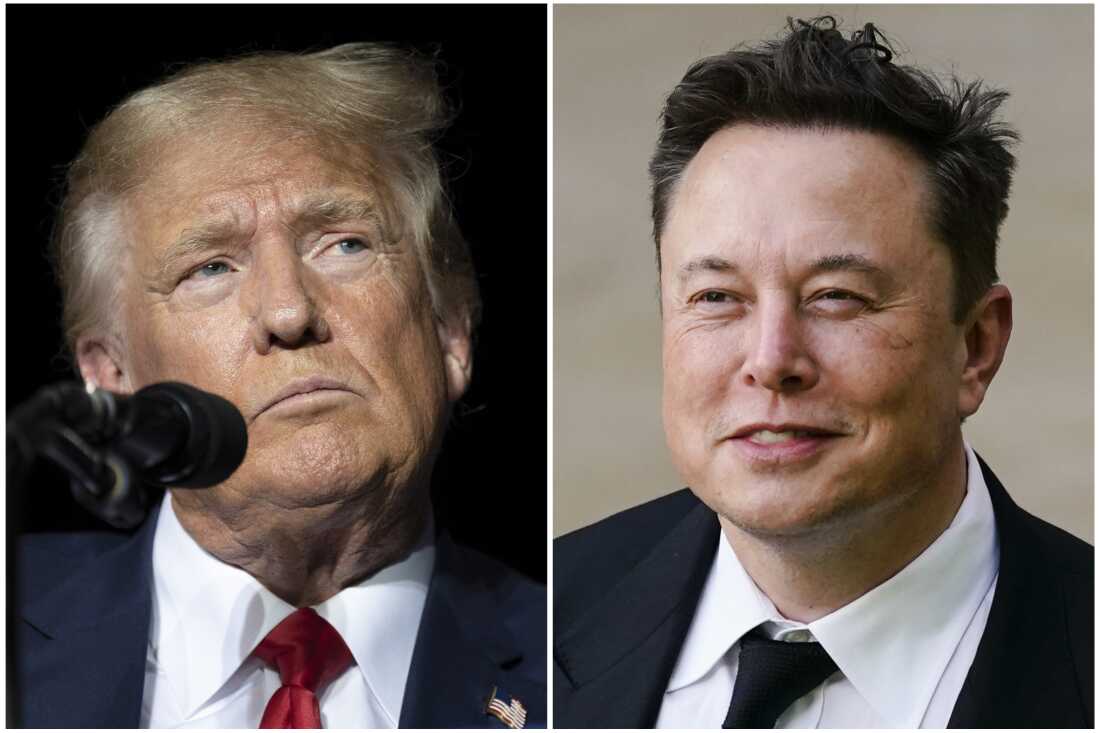Elon Musk and Donald Trump Clash in Fiery Policy Fallout
06.06.2025 8:00 2 min. read Alexander Stefanov
A rift between Elon Musk and Donald Trump erupted into the public eye today, marking what some observers are calling a point of no return in their relationship.
What began as a disagreement over electric vehicle policy has quickly spiraled into a high-profile clash of egos and accusations.
At the heart of the dispute is Trump’s move to roll back EV subsidies and incentives—financial mechanisms that have long supported Tesla’s expansion. While Trump claimed Musk had previously signed off on the legislation, Musk publicly refuted the claim, stating he was unaware of any such approval.
Tensions reached a boiling point after Trump accused Musk of turning on him and insisted he could have won the presidency without the Tesla CEO’s influence. Musk, in turn, fired back, crediting himself as instrumental in Trump’s electoral victory.
The exchange quickly grew personal. In a scathing social media post, Trump suggested that slashing government support for Musk’s companies would be an easy way to save billions in taxpayer money. He even questioned why the Biden administration hadn’t done so earlier.
But Musk didn’t stay silent. In a dramatic twist, the Tesla chief alluded to Trump being tied to the infamous Jeffrey Epstein case—an explosive accusation he framed as the real reason certain files were never made public. “Time to drop the really big bombshell,” Musk wrote, directly naming Trump in the message.
What began as a policy dispute has now evolved into a public battle laced with personal vendettas and political stakes, signaling that the once-quiet alliance between the tech mogul and the president may be permanently fractured.
-
1
U.S. Bank Advises Clients to Drop These Cryptocurrencies
29.06.2025 10:00 2 min. read -
2
Chinese Tech Firms Turn to Crypto for Treasury Diversification
26.06.2025 17:00 1 min. read -
3
FTX Halts Recovery Payments in 49 Countries: Here Is the List
04.07.2025 18:00 2 min. read -
4
What Are the Key Trends in European Consumer Payments for 2024?
29.06.2025 8:00 2 min. read -
5
What Brian Armstrong’s New Stats Reveal About Institutional Crypto Growth
29.06.2025 15:00 2 min. read
Greed Holds as Market Momentum Builds: What is the Market Sentiment
The crypto market remains firmly in “Greed” territory, with CoinMarketCap’s Fear & Greed Index clocking in at 69/100 on July 19. Despite a modest 24-hour dip from 71, the index has now held above 60 for 11 consecutive days.
Top 7 Crypto Project Updates This Week
The crypto industry saw major advancements this past week across DeFi, NFT, Layer 2, and AI-powered platforms.
Peter Thiel-Backed Crypto Exchange Files for IPO
Cryptocurrency exchange Bullish, backed by billionaire investor Peter Thiel, has officially filed for an initial public offering (IPO), marking a major step toward entering the public markets.
Tether Plans U.S.-Issued Stablecoin After Trump Signs GENIUS Act
With President Trump officially signing the GENIUS Act into law, the regulatory landscape for stablecoins in the U.S. has entered a new phase—prompting major reactions from the industry’s top players.
-
1
U.S. Bank Advises Clients to Drop These Cryptocurrencies
29.06.2025 10:00 2 min. read -
2
Chinese Tech Firms Turn to Crypto for Treasury Diversification
26.06.2025 17:00 1 min. read -
3
FTX Halts Recovery Payments in 49 Countries: Here Is the List
04.07.2025 18:00 2 min. read -
4
What Are the Key Trends in European Consumer Payments for 2024?
29.06.2025 8:00 2 min. read -
5
What Brian Armstrong’s New Stats Reveal About Institutional Crypto Growth
29.06.2025 15:00 2 min. read


